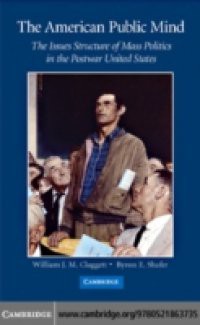What is the real nature of substantive conflict in mass politics during the postwar years in the United States? How is it reflected in the American public mind? And how does this issue structure shape electoral conflict? William J. M. Claggett and Byron E. Shafer answer by developing measures of public preference in four great policy realms - social welfare, international relations, civil rights, and cultural values - for the entire period between 1952 and 2004. They use these to identify the issues that were moving the voting public at various points in time, while revealing the way in which public preferences shaped the structure of electoral politics. What results is the restoration of policy substance to the center of mass politics in the United States.

